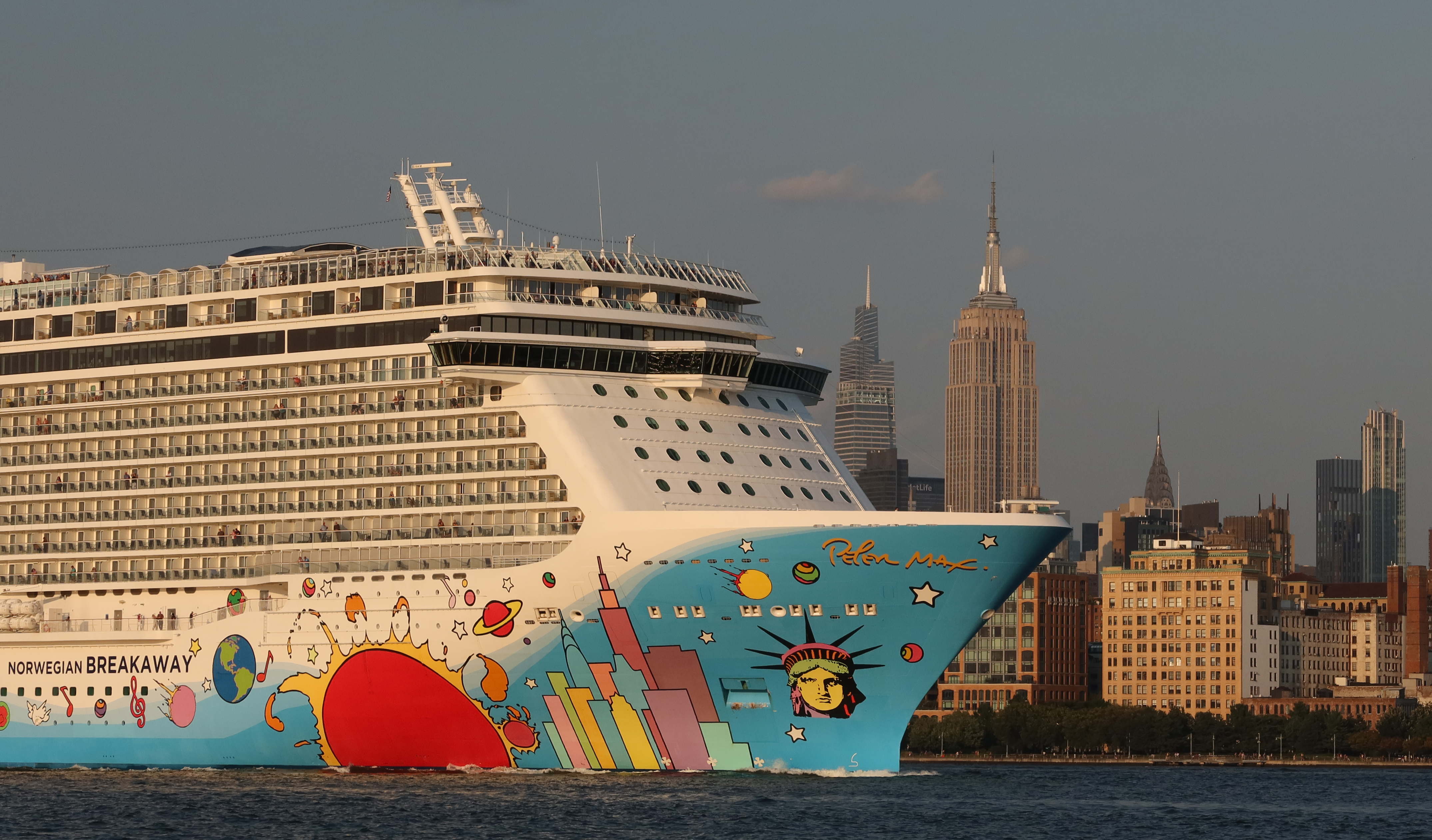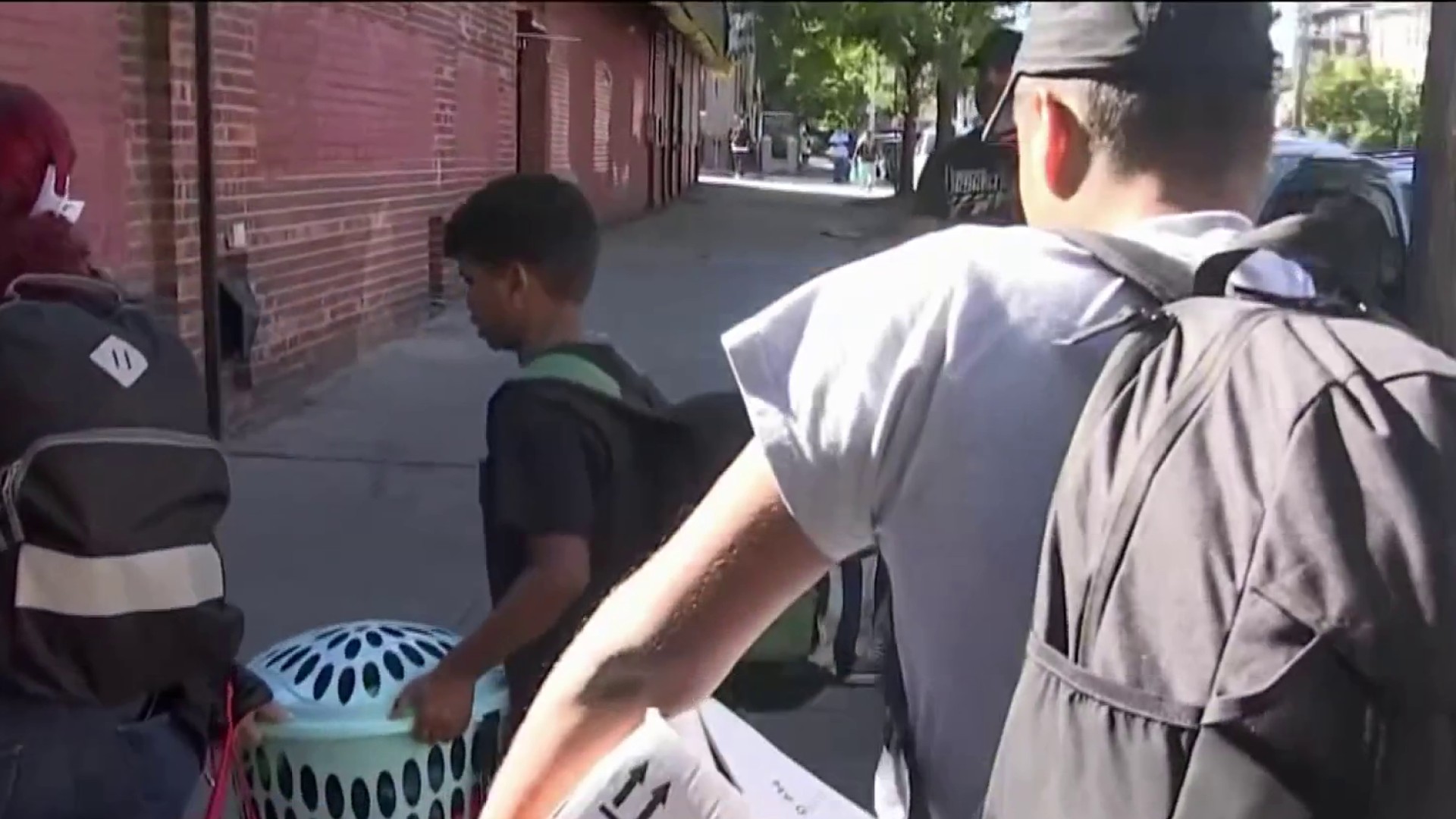Mayor Eric Adams has drawn criticism lately, after the city's plans to build a tent city for asylum seekers in the Bronx, as well as the latest reported plan to house migrants on one of Norwegian Cruise Line's luxury vessels upon arrival in the Big Apple.
But the NBC New York I-Team has uncovered a more immediate problem facing the city and the migrants who have overwhelmed the shelter system: Many of the babies in the system are not getting enough to eat.
During dinnertime at the Queens Travel Lodge, a baby boy has already finished his bottle of milk. He's still hungry, but his mother says at this shelter there are no refills.
“My children are in dire need,” she tells News 4, crying as she says that the food situation at the shelter has her at the brink of desperation.
The shelter serves small meals, But no baby food or formula. Just one eight-ounce container of milk per baby, per day — unless the milk is expiring, in which case she says they get extra.
Get Tri-state area news delivered to your inbox. Sign up for NBC New York's News Headlines newsletter.
"The food is very restricted,” the mother said.
Residents at the Queens shelter shared a video showing how they're forced to sign for every milk or juice they consume.
"I feel like this is a jail,” a mother said.
When she asked for more, a mother said a shelter employee dictated an answer into her phone so it could be translated into Spanish, which read “we already gave you milk or food because the children eat at their school. I only follow orders so don't bother me anymore."
The I-Team interviewed multiple families at other hotels with similar stories. At the Super 8 in Brooklyn, a woman said the meals were “not enough.” In a midtown shelter, a pregnant mom worried her unborn baby girl isn’t getting enough nutrients because dinner at her shelter is just 230 calories.
“On a daily basis, we see about 75 families that come. They don't have no milk,” said food pantry volunteer Maria Vergara.
At food pantries throughout the city, demand is high and supplies are low.
“The face changes…Like when we give them milk and they drink it in front of us, the face changes,” Vergara said. "It's heart-breaking that the shelters in our city are not providing the essentials for the kids.”
Baby Jimena Mendoza downed milk after milk outside a Manhattan pantry. Her big sister said the baby needs formula and milk, and has been throwing up the shelter food because she's not used to it. The girls’ father said that after a difficult trek from Venezuela, getting to a place like New York and struggling for food is hard.
Another migrant, Maria Plaza, said while they could definitely use more food, she thinks the city is helping migrants a lot. She is grateful for a place to sleep and the free food they do receive.
Pedro Rodriguez runs a network of food pantries that helped feed new Yorkers during the pandemic. He believes part of the problem is that the food is not what these families are used to eating — but adds it's also just not enough.
“They don't have food for the children. These kids are getting hungrier. We are scrambling,” Rodriguez told NBC New York. “This is an emergency in that sense. We're talking about babies that need food.”
From the very beginning of the migrant influx, the I-Team has been asking City Hall about the food supply. Adams said in the past that "we're providing them with food. I mean, this city is so humane!"
A mom of a little boy suggested Mayor Adams pay a visit with inspectors to the shelters, adding that her one wish is for the federal government to give migrants the opportunity to work so she can provide for her own children and not ask for help.
While most homeless families from New York receive food stamps or welfare, the migrants do not. And they can't work, so they have no power to supplement what the shelters provide.
In a statement, the city Department of Social Services said they are working around the clock to serve thousands of recently arrived asylum seekers. The statement did not address specific questions about the food supply, nor whether they are aware of any hungry babies in their care.
"We ensure that all shelters serving families with children are receiving adequate and appropriate food provisions for all infants on site," the DSS said in their statement.




